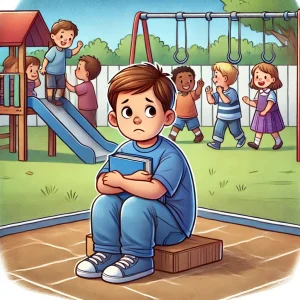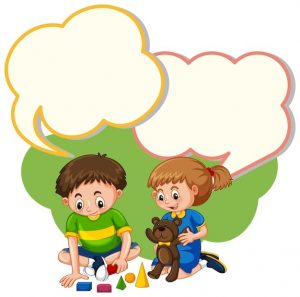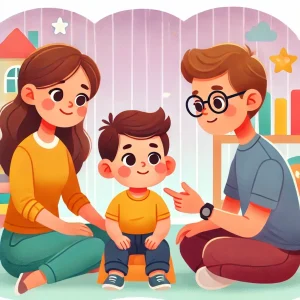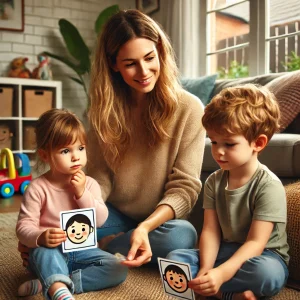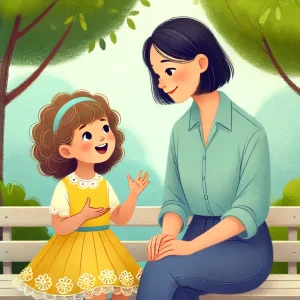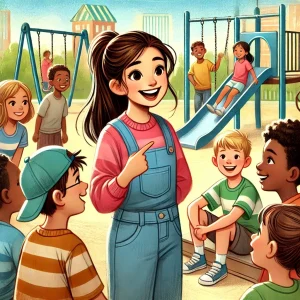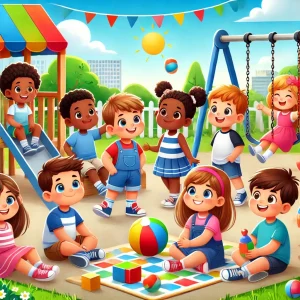Unlocking Speech & Language: Key Milestones for 2-3 Year Olds (with Tips!)
By Wellness Hub
Last Updated: October 30, 2023
And here comes the terrible twos!!
People commonly agree on the point that you need the energy to handle a two-year-old toddler. They are much more than what you expect or understand. It is famously said that children learn from what you are than what you teach. It is because they absorb so much from their environment. Children by two years of age can display many skills relating to all areas, such as speech, language, motor skills, cognition, and behavior. Though it sometimes varies from child to child, most of these milestones are met on time with good support and encouragement from parents and caregivers.
The speech and language milestones around this age encompass various aspects of communication, including vocabulary expansion, grammar acquisition, and the emergence of more complex language structures. It is important for parents and caregivers to understand these milestones in order to monitor a child’s development and address any potential concerns. Let us have a look at the specific speech and language milestones of a two to three-year-old toddler.
Expanding Vocabulary:
By the age of 2, most children typically have a vocabulary of around 50 to 100 words. However, as they progress through their third year, vocabulary expands. They tend to learn as many new words as possible. This, again, depends on the environment the child is exposed to. Children who are brought up in multi-lingual households pick up different languages at a faster rate than the others.
Early vocabulary:
Children around two years of age often use simple words to express their basic needs and wants. The words like “mama,” “daddy,” “mine,” “more,” etc. are among their early vocabulary.
Nouns rain:
As children progress, they pick up a notable number of nouns from the objects around them. You can observe a plethora of nouns rain from their little mouths. They try calling everything around them with a name and pick up the pronunciation quickly. By 2.5 to 3 years of age, their knowledge of nouns increases.
Possessions:
Using pronouns and indicating possession become an integral part of their daily conversations. Children begin to grasp the usage of pronouns like “I,” “you,” “your,” “mine,” and “me.”
Construction of sentences:
Till then, the usage of a single word would slowly turn into a combination of two or more words, leading to simple sentences. Though you find grammatical mistakes, they try to put up their expressions in sentences.
Two-word combos:
During two years of age, children try to combine two words and express their ideas. They try using combinations like “more juice” or “red ball.”
Convey meaning:
As they approach three years of age, children develop their sentences by omitting the less essential words. For instance, instead of “I need the pencil,” they would say, “I need a pencil”. They try to convey the meaning rather than forming the sentence in a grammatically correct way.
Using verb tenses:
You can observe them use verb tenses more appropriately. They try to use perfect verb tenses and try to form the exact meaning. For instance, they will distinctly identify the difference between “I’m jumping” and “I jumped” to use while narrating or expressing something.
Negations and questions:
By age 3, most children learn to form questions to enquire about something. They use “What is it?”, “Where is it?” and such Wh-questions. They also try to express their negative thoughts like “no” and “not” in their daily conversations.
| Receptive language | Expressive language |
| 2. Points to smaller parts of the body when asked (such as chin, elbow, eyebrow, etc.) | 3. Asks for help with some personal needs (such as washing hands, going to the toilet, etc) |
| 1. Usually uses 2-word or 3 word sentences. | 2. Often uses personal pronouns correctly (I, you, he, it, me, etc.) |
| 3. Recognizes and identifies general family name categories (such as baby, grandma, mother, etc.) | 5. Name few colors and repeat two or more numbers properly. |
| 4. Understands word association through functional identification (correctly answers such questions as “What do you hear with?”, “What do you wear?” etc.) | 4. Refers to self by using a pronoun rather than by his/her proper name. |
| 5. Understand size differences (correctly select “the little doll,” “the small book,” “the large bowl”) | 5. Name a few colors and repeat two or more numbers properly. |
Social communication skills:
There will be good improvement in children’s social communication skills at this age. Their conversations don’t contain just words or simple sentences. Toddlers around three years of age will be able to express their opinions, interests, wants, and needs precisely.
Turn-taking:
Children learn this skill of waiting for their turn to speak and of listening when it is another’s turn to speak. These toddlers become more adept in such turn-taking conversations.
Imitation:
Imitation can become children’s main source of social development. They observe others when they speak and express their emotions. Children try to imitate what they see during their conversations. This pattern contributes to language development in children.
Emotions:
Children around three years of age try to label their emotions as being “sad,” “happy,” or “angry” so clearly. With the advance of their language skills, children will be able to express a wide range of emotions verbally.
Narrative skills:
Another important part of social communication is the skill to narrate. By three years of age, children learn to narrate short stories and simple life events in a sequential manner.
| Receptive language | Expressive language |
| 1. Understand all common verbs. | 2. Gives both 1st and last names when asked. |
| 1. Tells gender when asked, “Are you a girl or a boy?” | 4. Uses several verb forms correctly in relating what is going on in the action picture. |
| 3. Shows interest in explanations of “why” things are and “how” things function. | 3. Regularly relates experiences from the recent past (what happened while he/she). |
| 4. Carries out three simple verbal commands given in one long utterance. | 5. Understand prepositions (such as on, under, front, behind) |
| 5. Understands prepositions (such as on, under, front, behind) | 5. Uses some plural forms correctly |
Phonological Development:
Along with other speech skills, phonological awareness and refined speech development also take place. By three years of age, their pronunciation becomes intelligible.
Command over consonants:
By age three, children will be able to gain good command over the consonant sounds. Though there could be some sound errors, they will be able to articulate a wide range of consonants by the age of 3.
Expanding vocal skills:
Children will be able to articulate a broader range of mix of different consonant sounds. These include different consonant blends and vowel combinations. For instance, they would pronounce “bl,” “tr,” or “sya”. Keeping this progress of articulation as an interest, many Indian parents encourage their children in the recitation of Sanskrit slokas.
Rhyming awareness:
Around three years of age, many children display a greater ability of rhyming awareness. You may observe them forming word combinations whenever they find rhyming words. They try to rhyme with a known word whenever they find a new funny word.
To put it all together, speech and language development during two to three years of age is a crucial and exciting one. Parents and caregivers play a vital role in fostering a rich language environment that supports and nurtures these emerging skills. While it is normal to have variations in individual development, having an idea of these milestones is important. Each step in your child’s linguistic journey is a reason for celebration, which not only improves their language proficiency but encourages their overall cognitive development and social communication skills.
In case you find any concerns in your child’s speech and language skills, never hesitate to talk to your pediatrician or consult a speech and language pathologist or therapist. Wellness Hub has a group of speech therapists or Speech and language pathologists who can assist you in this regard. You can have a detailed discussion with our expert speech therapists to know if there is a problem and, if present, how to address it. Home remedies are also suggested for you. Our Speech BASICS app helps your child foster their speech and language development. Wellness Hub offers online speech therapy and free speech consultation for those who have concerns and doubts about their children’s speech milestones. Claim your free session today!
Book your Free Consultation Today
Parent/Caregiver Info:
Client’s Details:
* Error Message



